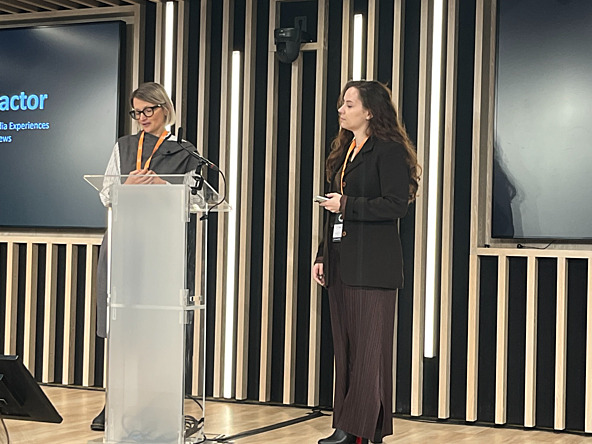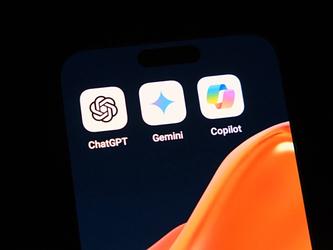Trust in news media could be boosted by including image provenance

Aleksandra Gojkovic, senior UX researcher, and Lara Monday, UX researcher, described a BBC project to understand how to build audience trust in digital news through a method of watermarking digital images to show each photo’s provenance.
Gojkovic said that it was important for the BBC to examine how to support trust in the news media in an increasingly difficult media environment.
“Trust is incredibly complex, incredibly nuanced and subjective. Delivering trust isn’t very easy either, and today it requires deep digital expertise,” she said.
“We were dealing with an exceptionally broad challenge of trust in news, and increasingly the proliferation of misinformation and disinformation, the use of AI and the wider societal impacts of that.”
Monday said that the BBC team wanted to know how to empower users to surface information about the content they saw to make a judgement on the accuracy of an item of media, and how to maintain trust in traditional media in an era of fake news.
The project centred on highlighting the provenance of images used on BBC online news services to allow viewers to make a judgement on a piece of content – “essentially saying ‘here are the receipts’, here’s how it got here, rather than ‘just trust me’,” said Monday.
Methodology for the project started with qualitative research during the discovery phase with 12 to 15 people, followed by a quantitative survey with 200 people on the issue of trust. There was a co-creation phase of qualitative research on the types of information required for users, and then usability work once prototypes were created, as well as subsequent tests on the potential impact.
The project looked at editorial, stock and user-generated imagery, and trust was examined by using existing internal BBC measures for the subject.
Gojkovic said that displaying the provenance of images “had no negative effect on BBC news online”, adding that “the effect was primarily neutral; we saw some indication that it increased trust”.
However, this differed between BBC users and non-users, explained Gojkovic: “Adding provenance significantly increased trust among non-BBC users, whereas the impact on BBC users, where trust levels were already high, was neutral.
“That enabled us to prompt and initiate a conversation with our stakeholders about what that actually meant when it came to implementing provenance within and outside of our owned digital assets.”
Trust was lower for editorial images rather than for stock and user-generated photos, but adding the provenance of an image to a photo boosted editorial to a comparable level to the other two categories. “What we found was that provenance acted as an equaliser for trust in different types of images,” said Gojkovic.
The project has since been repeated in other countries, including Norway and the US, with similar results. In the BBC study, a medium level of trust in an image was a “tipping point” for trust, as anything higher saw little boost from including the provenance of the image.
Gojkovic said that bringing the user experience into the project “enabled us to put users at the heart and focus on the users first and foremost”.
“Quantifying impact played a crucial role in gaining business approval for us, and coordinating with the wider tech and media industry to benefit society meant we worked in the open, we shared the approach. We thought of the long-term value when we were framing our approach as well as our findings, and for us this is a continued evolution – our work doesn’t end here.”

We hope you enjoyed this article.
Research Live is published by MRS.
The Market Research Society (MRS) exists to promote and protect the research sector, showcasing how research delivers impact for businesses and government.
Members of MRS enjoy many benefits including tailoured policy guidance, discounts on training and conferences, and access to member-only content.
For example, there's an archive of winning case studies from over a decade of MRS Awards.
Find out more about the benefits of joining MRS here.














0 Comments